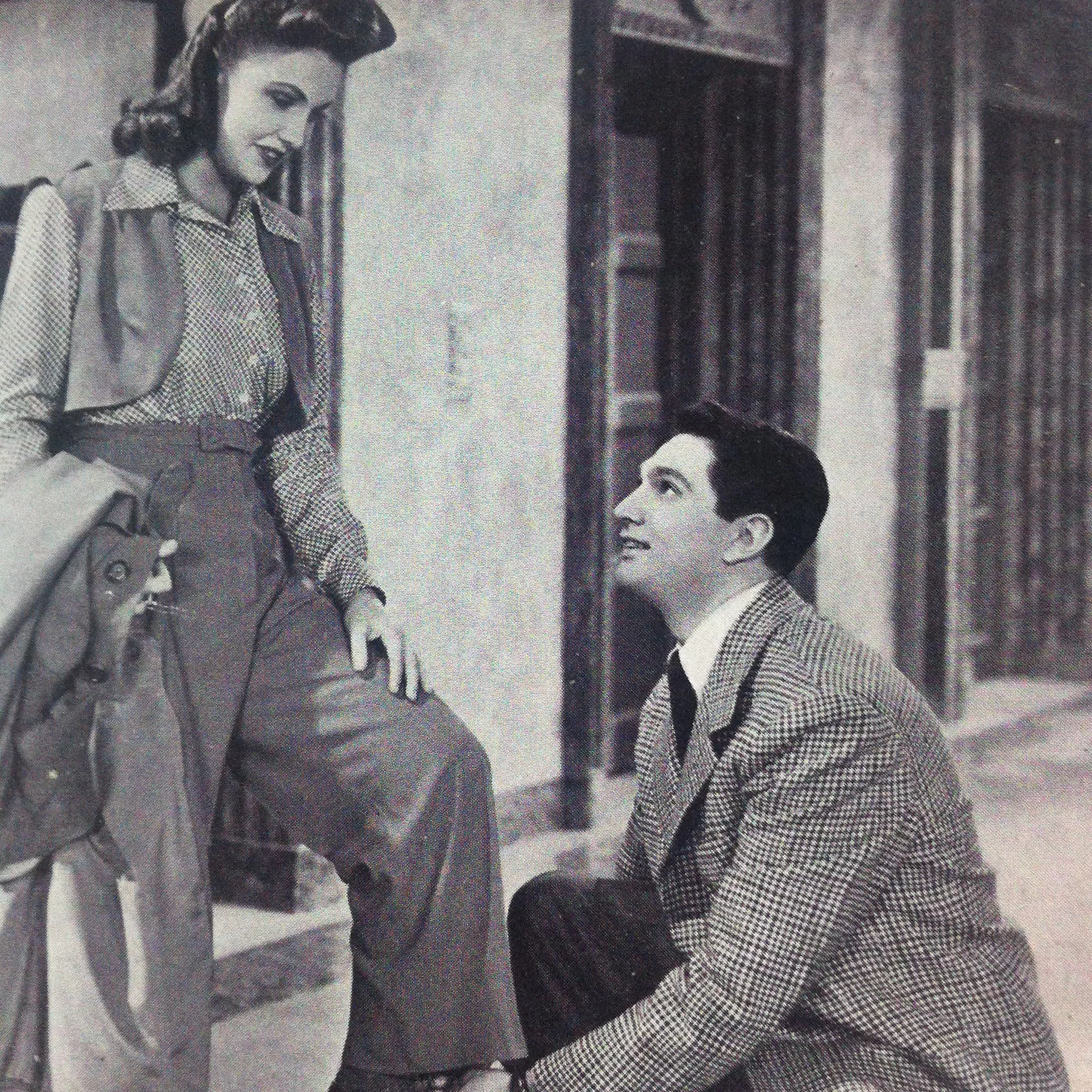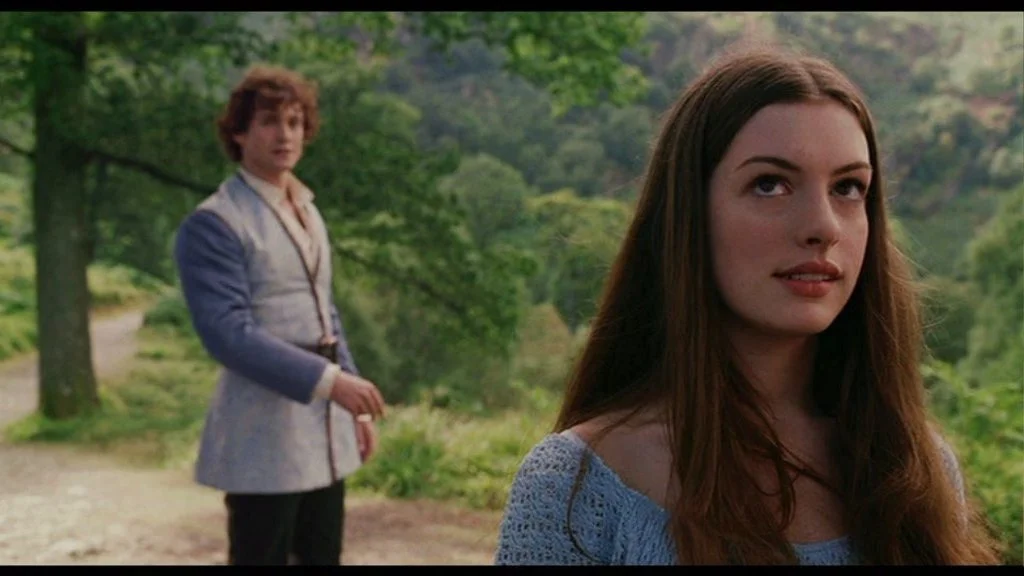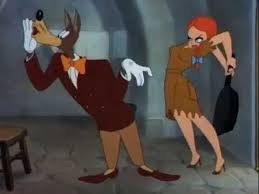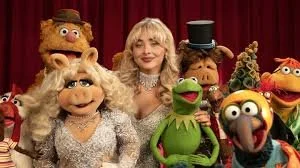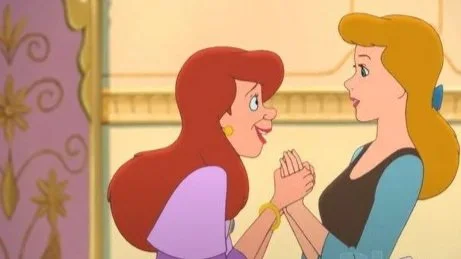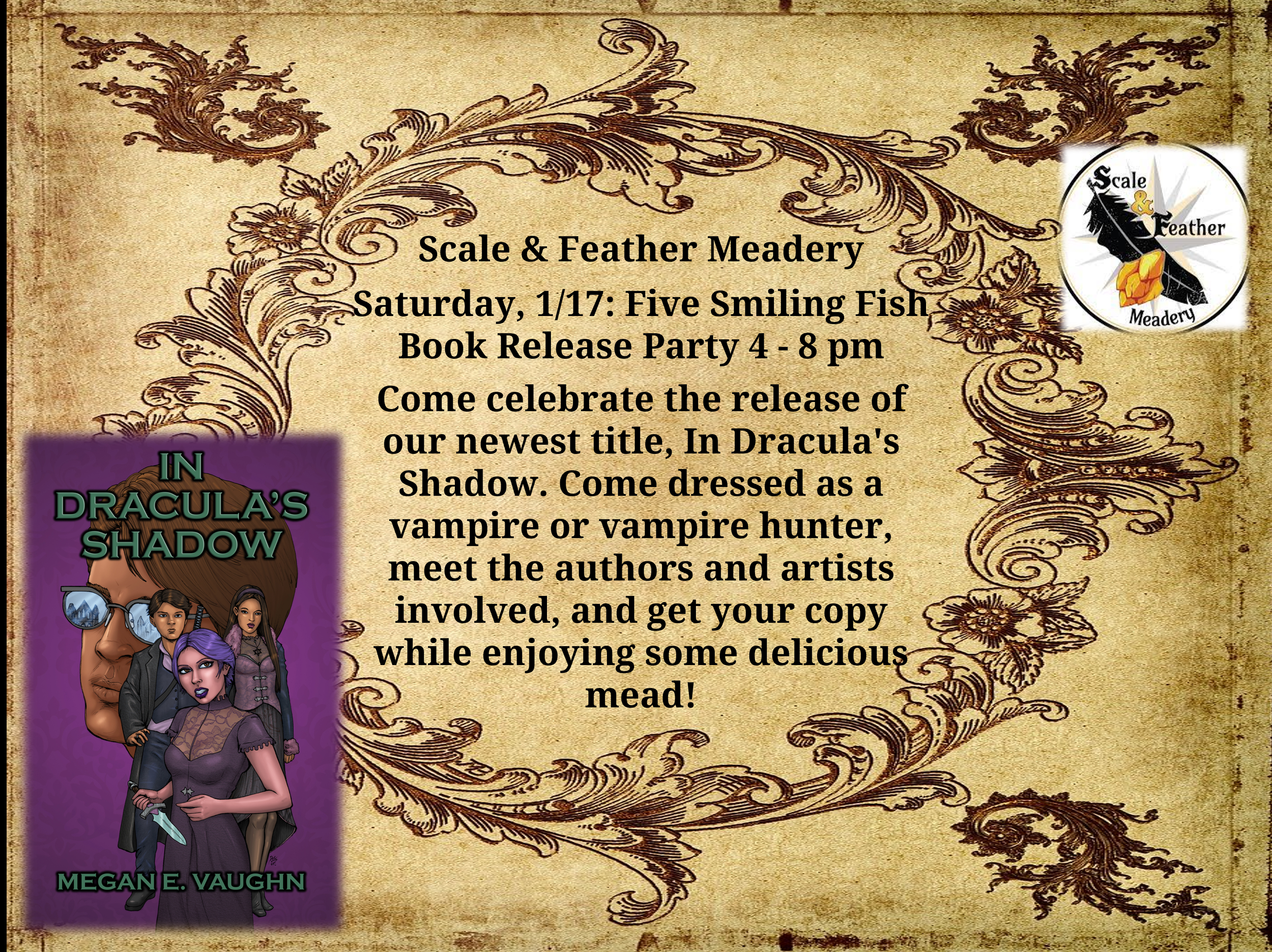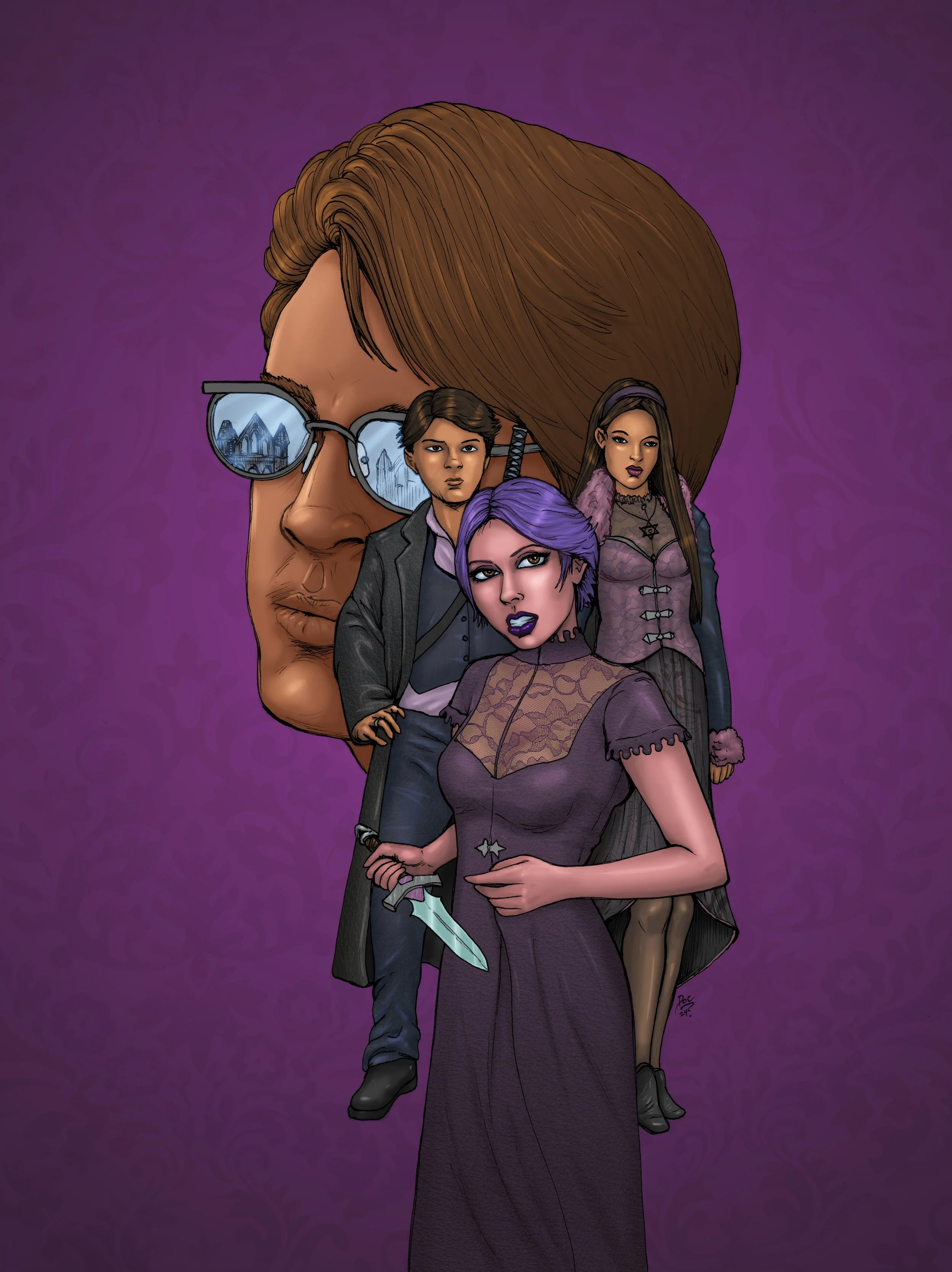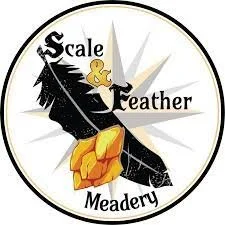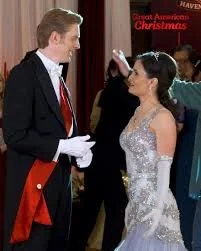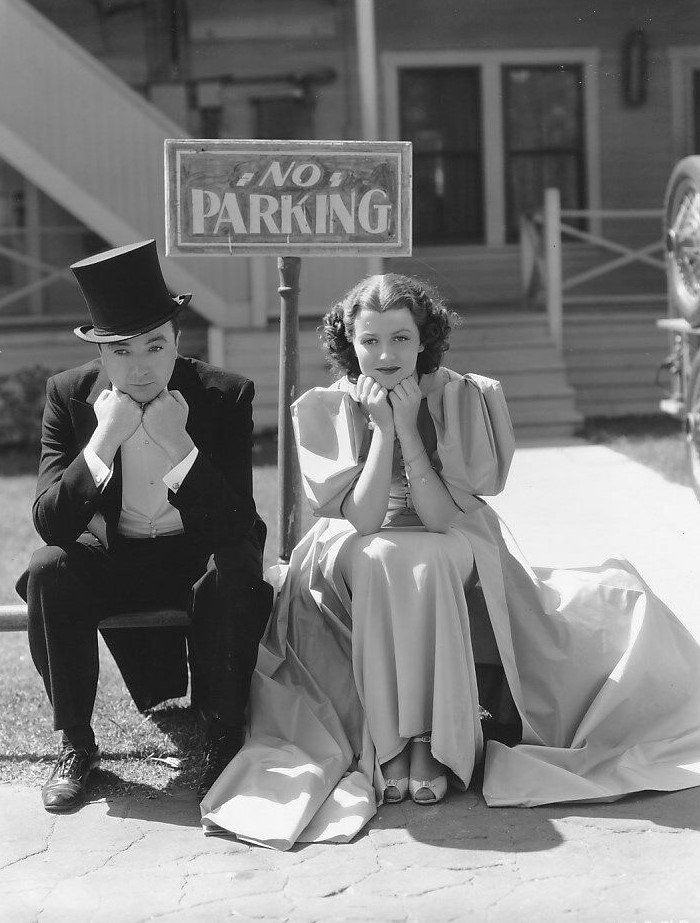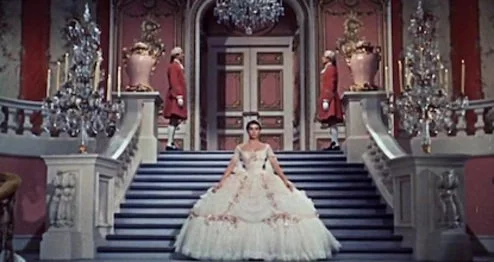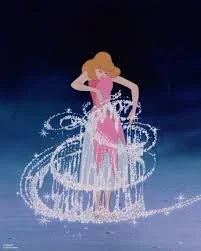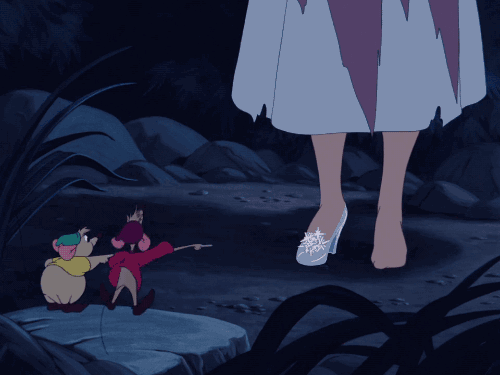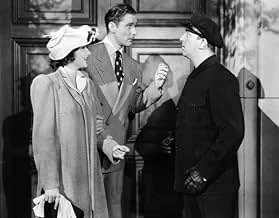This is another of those "What did I just Watch?! movies. Joan Leslie plays Judy Jones, is a singer who much marry a genius in order to inherit a fortune from her uncle. Also in film is are a ton of lawyers, musical numbers, dynamite, and a serial killer . . . all directed by Busby Berkeley. There is also a slew of character actors like Edward Everett Horton, S.Z. Sakall, and Elisha Cook Jr.
Judy and her boyfriend Tommy (Robert Alda) have a gimmick radio show and can’t get married until they have some money. Tommy realized that the lawyers of her uncle’s estate are looking for her and thinks with the money they can get married, not knowing the added detail that she much marry a genius. Judy is kind, flighty, and, get this, always losing her shoe. She is able to prove her identity through a shrunken head her uncle sent her as a toddler. She calls the head “Charlie” and pets it like a plush toy. “It’s so hard to shop for a baby.” She always nice, despite her being rather naive and uneducated. Tommy spends his time lovingly explaining things to her and correcting her vocabulary. Normally, I would be annoyed by his man-splaining, but this feels more like him protecting her and worrying that world will take advantage of her sweet, “dumb” disposition.
Judy seems to think she can marry a genius, get the money, and then somehow be with Tommy in the end. Tommy, knowing that things don’t work that way, changes his mind about he money and tries to convince her to just run away with him. She talks a chemistry professor (Sakall) to help her look for a genius to marry in exchange for a donation to his lab. She enrolls in the college under a man’s name (it’s an all men’s school) and her roommate (Cook) meets his first ever girl. This results in him becoming her stalker! She also meets Bart Williams (William Prince), who can’t stand her air-headed behavior, but the chemistry professor tries to hook them up and Judy gets a crush on Bart. Judy moves in with Camille (Julie Bishop), a female taxi driver who gives advice and acts as modern fairy godmother.
Then, and this is where the plot gets very weird, the chemistry professor tries to talk to Judy at the boarding house and is arrested as a peeping tom. In jail, he escapes along with his cellmate, an ax murderer! They put he professor and Bart are acquitted, yet the focus is still on getting Bart and Judy together in order to get money for the chemistry lab. Tommy, seeing Judy’s crush on Bart and wanted what he thinks is best for her, also joins plots to bring them together. Tommy even uses complex math and chemical equations to convince Bart that he’s in love with Judy. By the way, this all happens within a week.
SPOILER ALERT!
The whole group gets arrested again and the ax murderer comes back to the jail looking for his ax! They use him as a distraction to escape after finding out that Tommy is legally a genius who graduated Magna Cum Laude with a law degree, but Judy never bothered to ask him about it. They are interrupted again by singing army troops, but the army chaplain marries Tommy to Judy. And they all ride away on a tank. The end.


